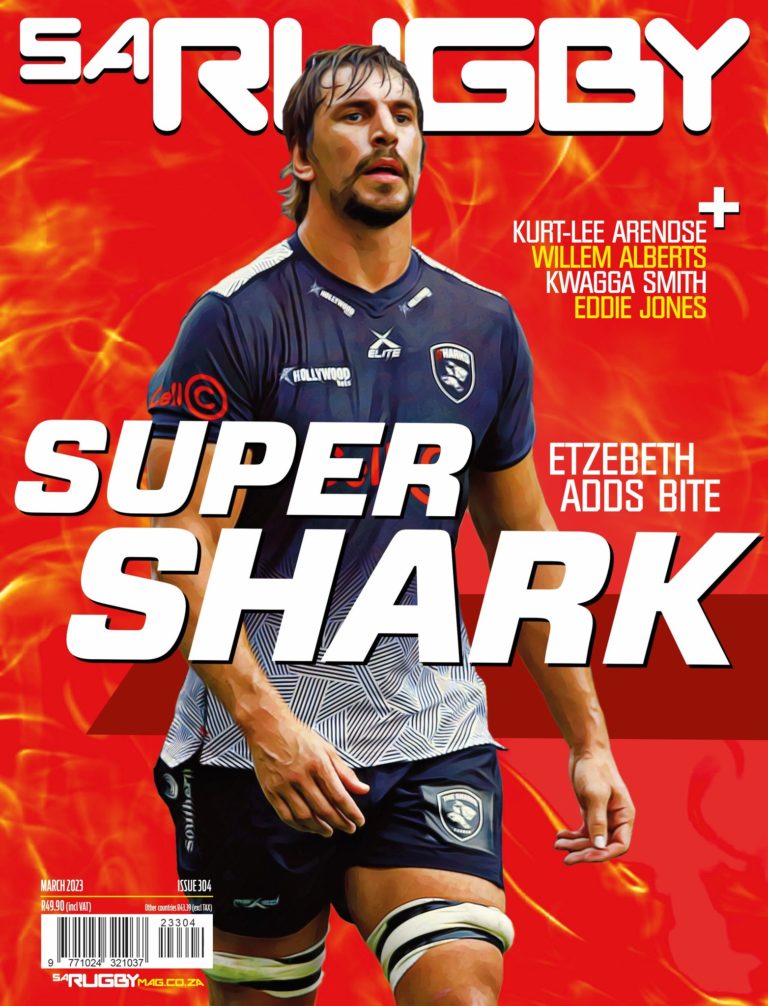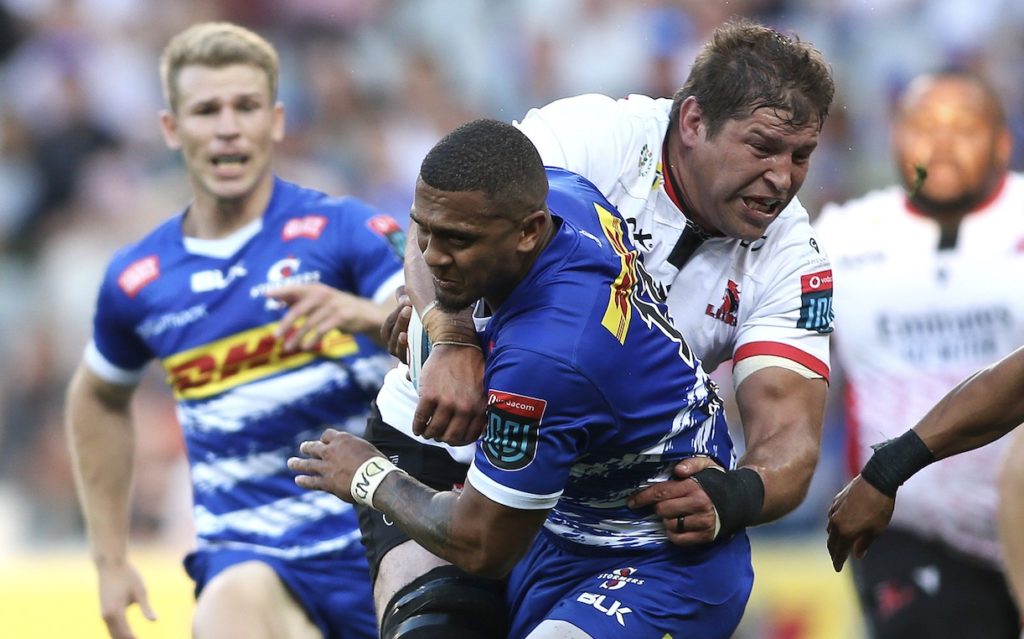Veteran forward Willem Alberts continues to make bone-crunching tackles for the Lions, almost 20 years after starting his career in Johannesburg, writes OLIVER KEOHANE in SA Rugby magazine.
In 2005, 20-year-old Willem Alberts started his professional career at the Golden Lions. In 2023, 38-year-old Alberts finds himself back home, helping the Lions compete in the United Rugby Championship and Challenge Cup.
The landscape has changed completely, as one would expect over an 18-year career, but Alberts’ passion has not wavered, and neither has his propensity for writing off people with his tackles.
‘The Bone Collector’ spent much of his career terrorising opponents from the blindside flank; for the Lions, Sharks, Springboks and then Stade Français, where he spent five years before returning to South Africa. Back in a red jersey, Alberts has returned to lock, where he played most of his junior rugby.
From a franchise and position perspective, it really does seem like a full-circle fairytale for a player wrapping up an illustrious career. But Alberts’ return to the Lions was more fortuitous than it was planned.
“The French league introduced laws against the number of foreigners sides were allowed to have,’ explains Alberts. ‘Each year, the number went down and they could sign fewer and fewer players, so myself and Morné Steyn – who were pushing an older bracket – ran out of contract.
“I ended up with a bicep tear, which luckily got better, and the Lions got wind of it and offered me a lifeline. I did a medical and it all worked out. Completing the circle was not the plan but it has been a blessing.”
MORE: Rugby Championship set for radical change?
Alberts speaks fondly of his time with Stade Français and how his intention of just travelling and playing rugby very quickly transformed into him ingraining himself in the French culture and making great friends. As fate would have it, Alberts played his 100th game for the Lions in Paris.
Alberts is still collecting bones back in South Africa, and a memorable moment was when young Springbok and Stormers eighthman Evan Roos scooped up the ball inside his 22m line, ran it up and got stopped dead by an enormous shoulder. Vintage Willem Alberts.
What’s remarkable is that the same set of shoulders that broke Schalk Burger’s ribs in the 2010 Currie Cup final is now taking the names of the next generation of Springboks.
MORE: Super Shark Etzebeth shows club value
How is Alberts still going, seemingly at full steam? How is he still going given the high attrition rate of his position?
Let’s start in France.
“When I came over to Europe in 2015, I was dubbed too old for South Africa because over 30 was too old for Super Rugby. But at Stade Français I was middle age, which was then between 28-32. The rugby was a bit slower, the emphasis was on heavier packs,’ Alberts says.
“When I was 30, I thought I’d be playing to 33. After things came to an end at Stade, I wasn’t sure, but then when I got to the Lions we were hit with Covid, which gave my body an extended break.”
Alberts also attributes his longevity to the excellent rehabilitation schedules he’s had throughout his career. “Anything can happen, you could get a huge injury at 21. Sometimes you don’t recover, but at the Sharks and Stade Français the rehab schedules were exceptional. Naturally, a bit of luck and grace from above plays its part too.”
Alberts’ career has extended over a period where rugby has evolved into a far more professional environment. This is true at Test level, domestic level, and quite fundamentally at schoolboy level, where some schools programmes are more reminiscent of rugby institutions than they are of extracurricular activity. To this point, Alberts mentions something very interesting, in line with the length of his career: “I think I first hit the gym when I was 21. I was a late starter too, at the highest level, and I didn’t gym as a youngster. Gym is shortening guys’ careers.”
There is such intense pressure on children to be the size, strength and speed of grown men in order to break into the professional environment, and the argument that the strain on their joints, muscles and bodies is affecting their career prospects is not unfounded. Especially when it comes from Alberts, who is 1.92m, weighs 120kg and is still playing high-level rugby at 38 years old.
With 43 Test caps for the Springboks, and almost 200 at senior provincial and franchise level, Alberts has given his share to South African rugby. He has also played in every condition imaginable, and toured back in the era of Super Rugby and now the northern hemisphere structure within which South African teams operate. What’s changed?
“Normally, Super Rugby was one long tour and a lot of the challenge depended on when you went over,’ he says. ‘The weather conditions were never as extreme as Europe. Sometimes we find ourselves training on synthetic pitches because it’s snowing and the grass is frozen over, which was obviously never a consideration in Super Rugby.”
The growing popularity of synthetic pitches is a factor that Alberts suggests could see European rugby start aligning more with the pace of the old Super Rugby.
“European weather conditions have traditionally favoured a heavier pack, and the games tend to be a bit slower, but a lot of synthetic pitches have been established recently which makes the games quicker, so it will be interesting to see the effect that has,” Alberts says.
So, 39 this year and still going strong, Alberts is not pre-emptively calling it a day.
“Playing at lock I can probably get away with running a bit less, so that helps me carry on!’ he jokes, before offering more sober reflection of his current situation at the Lions and future prospects.
“I’m not going to put a cap on when I will stop playing, I’m taking it day by day, week by week. Obviously, I can’t play forever but just maybe there is another season in the body.
“I have to train smarter these days, not necessarily harder, and it’s a difficult balance between showing commitment to training but not overtraining. The coaches obviously need to see you’re committed during the week, but over my whole career the important thing for me has not been the week of training, but being able to put my body on the line for the team on the weekends, and I still feel I can do that.”
– This article first appeared in the March 2023 issue of SA Rugby magazine. The April 2023 issue is on sale now.

Photo: Shaun Roy/BackpagePix





